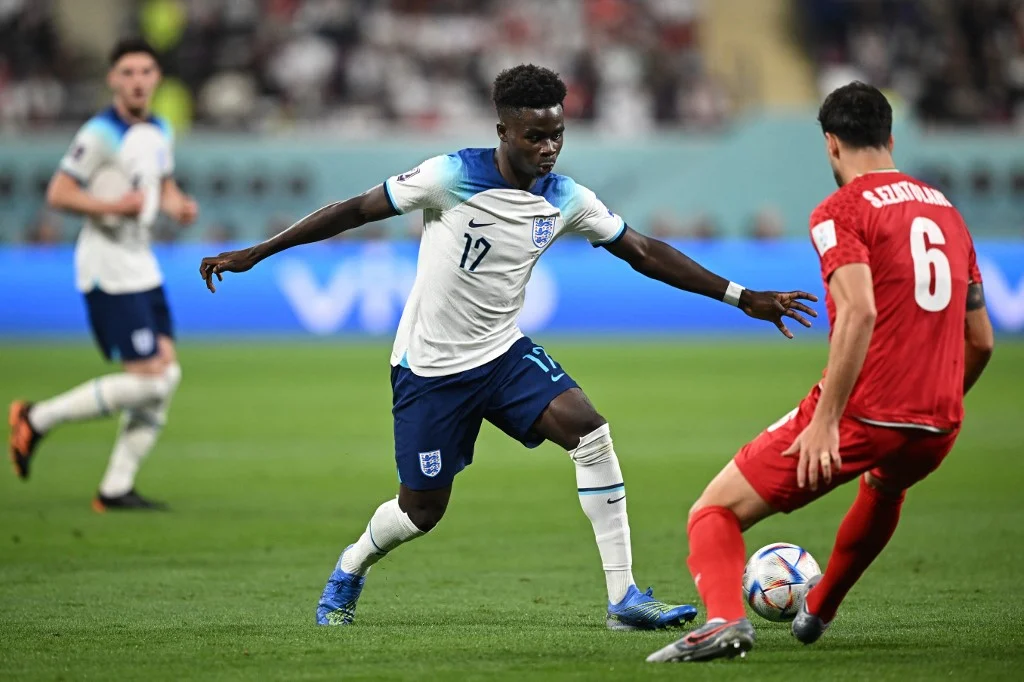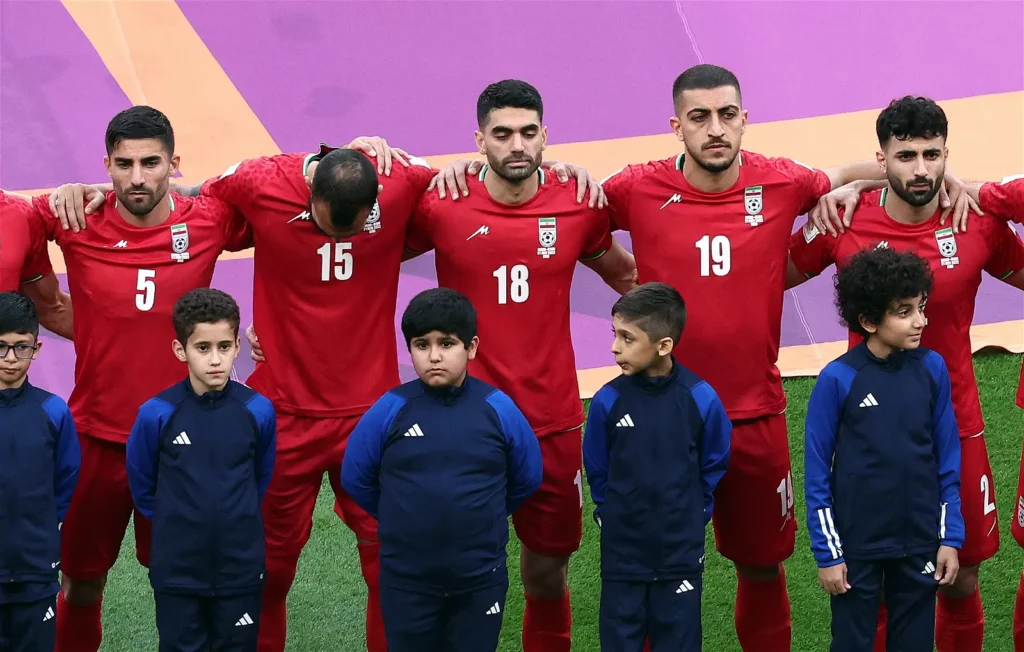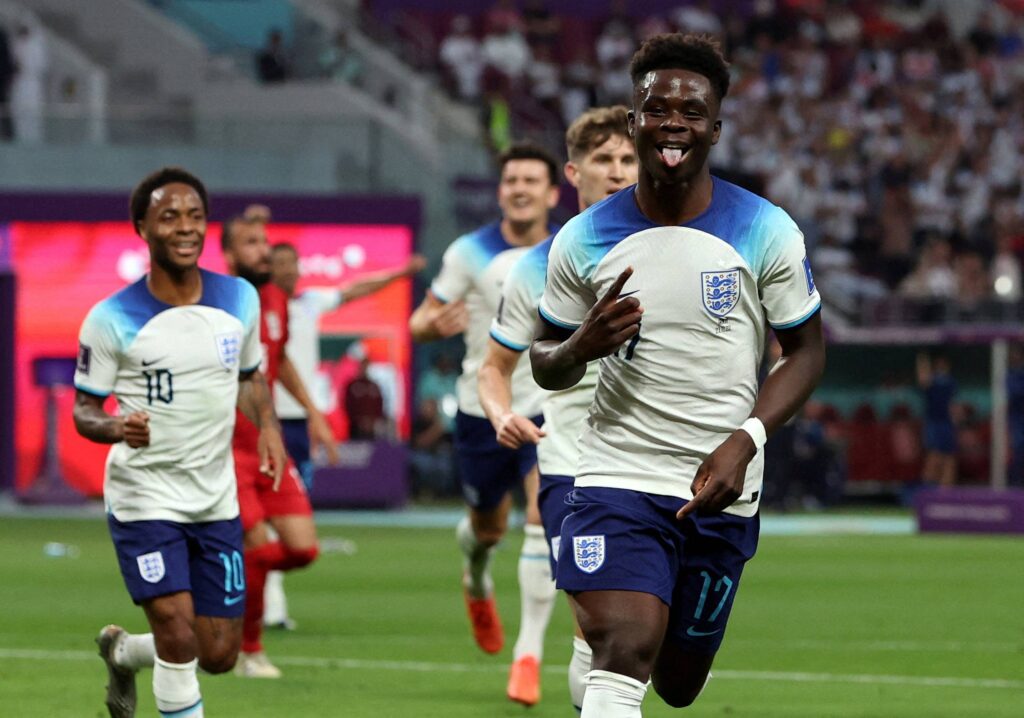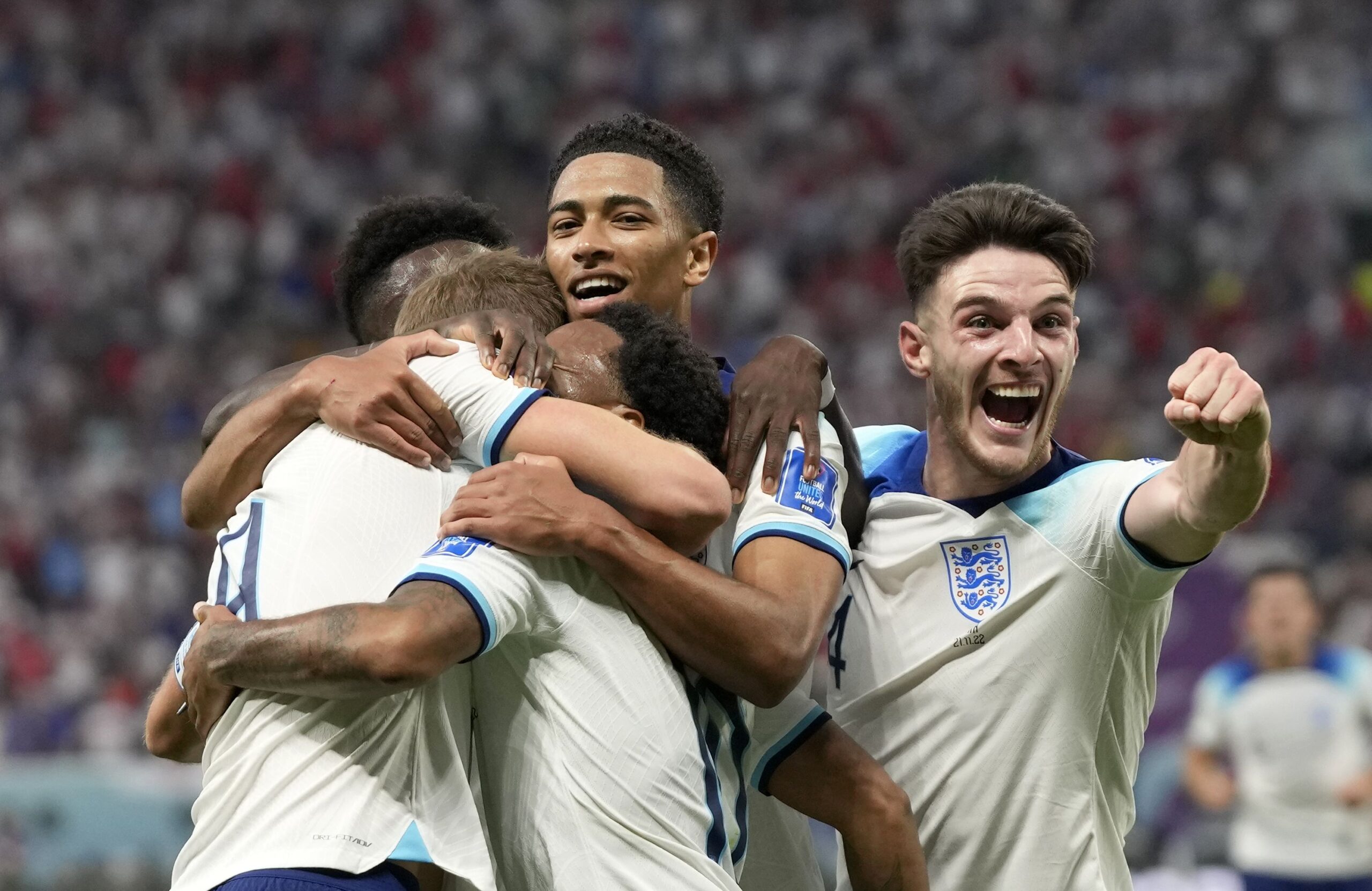Synopsis: World Cup 2022: England Gets Off to a Flying Start, as Iranian Players Support Those at Home
England scored six goals against Iran in a game that was heightened by the unusual atmosphere in Qatar.

England Gets Off to a Flying Start, while Iranian Players Support Those at Home
The buildup to a soccer World Cup is typically frenetic in England. For the pre-tournament period, certain traditions have emerged. There are heated debates regarding the roster, the strategy, the best starting eleven, and if this team can erase England’s “years of hurt” since winning its sole major tournament, the 1966 World Cup. Cars are decorated with the St. George flag.
A prominent player is frequently injured in the weeks leading up to the first group match, igniting a “race to be fit” for the tournament. There are serious concerns regarding the behaviour of English fans in other countries.

However, by 2022, the atmosphere in England has become more subdued. There are obvious reasons for English fans to be less enthused about Qatar 2022 than past World Cups. The tournament, which cost more than two hundred billion dollars to host, is steeped with problems that I won’t get into here.
The main topic of discussion on BBC radio on the morning of England’s first match, against Iran, was whether Harry Kane—the captain of an England team that frequently displays its progressive views—would wear a rainbow-themed “OneLove” captain’s armband signalling his support for L.G.B.T.Q.+ rights, and whether the referee would give him a yellow card for doing so.
However, this is an unusual time of year for a World Cup. The event, which has historically been held during the summer in the Northern Hemisphere, should seem like a vacation, even if spectators merely move between their fridge and their couch.
During the blistering English summer of 2018, when Russia hosted the World Cup, a neighbour of mine purchased the largest home television I’d ever seen and put it in his garden. When a game was on, several households would congregate in Megatron Garden to watch it and eat barbecued sausages. The children raced around, while the adults drank beer. It felt like heaven.

Qatar moved the event to the Northern Hemisphere winter due to the high heat of their summer, which was obvious when the country won its bid in 2010, but was strangely overlooked. Instead of filling the summer gap between Premier League seasons, the World Cup has now cut short a very intriguing one. My next-door neighbor’s garden is flooded.
Nobody on our street is throwing a World Cup party. In a tweet, English actor Daniel Mays expressed his sentiments about Qatar 2022: “Maybe my feelings will change once tournament excitement sets in, but I can’t be arsed about the World Cup.” I never thought I’d say that, and I adore football. Wrong place, wrong time, wrong everything.”
One can also wonder if they chose the wrong opponent. Following the death in detention of Mahsa Amini, Iran has been engulfed in protests regarding women’s rights. Several people have died as a result of the protests. Iran’s participation in the World Cup has been called into question.
But who exactly does a national team represent? Is it the people or the government? Ehsan Hajsafi, the Iranian captain, told a press conference yesterday that his players supported the demonstrators at home. And, right before kickoff, he and his teammates reinforced this attitude. The crowd booed as the national anthem played, and the players did not sing a word. It was a brave act that cast a shadow on England’s fragility over the armband.

Given these circumstances, and the weird aura that pervades this entire tournament, the first ball was kicked felt unsettling. Iran is ranked twentieth in the world and is not to be taken lightly. Carlos Queiroz, the team’s Portuguese manager, had built up his squad defensively. He used five defenders across the back, with a lone attacker up front: the dangerous Mehdi Taremi, who scores frequently for his side Porto. England, on the other hand, completely dominated their opponent.
The English effort was led by two young players—Borussia Dortmund’s Jude Bellingham, who ran all over the pitch, and Arsenal’s Bukayo Saka, who looked deadly every time he had the ball—but the entire side appeared confident and quick-witted.
After 35 minutes of goalless play, Bellingham broke the deadlock with a looping header over the Iranian goalie. Saka and Raheem Sterling both scored well-taken goals. The game was all but over by halftime. England scored three more goals in the second half, through Saka, Marcus Rashford, and Jack Grealish.
Iran’s players grew ragged, and their tackles were rash, despite scoring two second-half goals, both from Taremi—the first a powerful strike following a quick break, and the second a coolly taken penalty kick after a questionable foul was called in the final minute of injury time. The match ended 6-2 in favour of England. The two remaining group matches, against the United States and Wales, will undoubtedly put England to the test more than Iran did.

Following the final whistle, a BBC television analyst speculated that “World Cup fever” had finally infected England. He is very likely correct. The English adore nothing more than a run of success in a major tournament, and the majority of the team’s followers are unconcerned about geopolitics.
The weather in England is currently atrocious, and the country is experiencing a cost-of-living problem. Soccer is a tremendous stimulant. My guess is that the debates over armbands and human rights will be forgotten shortly, and that pubs and fan parks will be crowded for England’s next game. I’m waiting to hear from my neighbour.
Read Also:
Portugal vs. Nigeria : FIFA World Cup 2022 warmup HIGHLIGHTS!
For more, visit Zesacentral!
